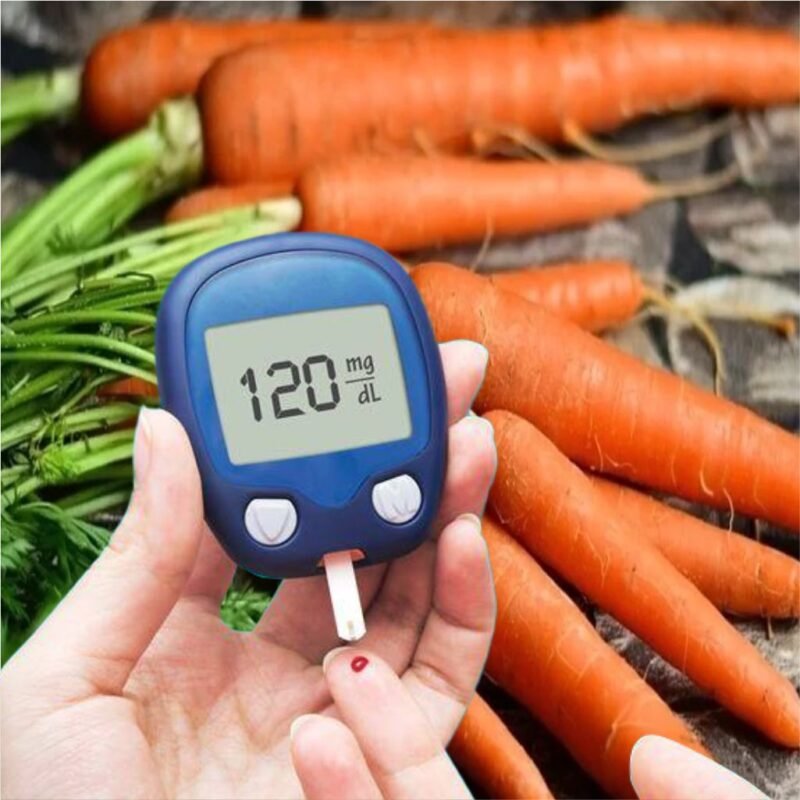Does Pomegranate Increase Blood Sugar : Exploring the Link

The question “Does Pomegranate Increase Blood Sugar” has become increasingly prevalent in recent years due to the growing popularity of this vibrant fruit and its potential health benefits. In this article, we will delve into the relationship between pomegranates and blood sugar, examining the scientific evidence and providing valuable insights into how consuming this fruit may affect blood sugar levels.
Understanding Blood Sugar
What is Blood Sugar?
Before we dive into the pomegranate-blood sugar connection, let’s understand what blood sugar is. Blood sugar, or blood glucose, is the amount of sugar (glucose) present in your blood. It serves as the primary source of energy for your body’s cells and organs.
Read This – Is Ayurvedic Medicine Good for Diabetes?
The Role of Insulin
Insulin, a hormone produced by the pancreas, plays a pivotal role in regulating blood sugar levels. It helps transport glucose from the bloodstream into the cells, ensuring they have the energy needed to function properly. When this delicate balance is disrupted, it can lead to health issues, including diabetes.

Pomegranates: A Nutrient Powerhouse
Nutritional Composition
Pomegranates are renowned for their rich nutritional profile. They are packed with vitamins, minerals, and antioxidants, making them a valuable addition to a healthy diet.
Fiber Content
One significant aspect of pomegranates is their high fiber content. Fiber is known for its ability to slow down the absorption of sugar in the bloodstream, which can be beneficial for those concerned about blood sugar levels.
The Impact of Pomegranates on Blood Sugar
Studies and Findings
Numerous studies have investigated the effects of pomegranates on blood sugar. While some initial research suggested that pomegranate juice might have a minimal impact on blood sugar, more recent studies have provided intriguing insights.
Antioxidants and Polyphenols
Pomegranates are rich in antioxidants and polyphenols, which are believed to have a positive impact on blood sugar control. These compounds may help improve insulin sensitivity and reduce inflammation, potentially benefiting individuals with diabetes.

Incorporating Pomegranates into Your Diet
Moderation is Key
If you’re concerned about the potential impact of pomegranates on your blood sugar, it’s essential to consume them in moderation. Incorporating them as part of a balanced diet is the key to reaping their benefits without causing significant spikes in blood sugar.
Other Considerations
It’s also crucial to consider your overall dietary choices and lifestyle factors. Maintaining a healthy weight, staying physically active, and managing stress are vital components of blood sugar management.
Conclusion
In conclusion, the link between pomegranates and blood sugar is complex and multifaceted. While pomegranates offer a wealth of health benefits, including potential positive effects on blood sugar control, it’s essential to consume them mindfully and as part of a broader healthy eating plan.
So, does pomegranate increase blood sugar? The answer is not a simple yes or no. Rather, it depends on various factors, including individual health, diet, and lifestyle. As with any dietary choice, moderation and balance are key.
FAQs
1. Can pomegranates be included in a diabetic diet?
Yes, pomegranates can be part of a diabetic diet when consumed in moderation and as part of a well-balanced meal plan.
2. How should pomegranates be prepared to maximize their health benefits?
Eating pomegranate seeds or drinking fresh pomegranate juice is the best way to enjoy their nutritional benefits.
3. Are there any side effects of consuming too much pomegranate?
Excessive consumption of pomegranate can lead to digestive issues for some individuals. It’s best to enjoy them in moderation.
4. Can pomegranates replace medication for diabetes management?
Pomegranates are not a replacement for diabetes medication. They can complement a treatment plan but should not be used as a sole treatment method.
5. Are there any specific guidelines for portion sizes when consuming pomegranates for blood sugar control?
Portion sizes can vary, but it’s generally recommended to consume about half a cup of pomegranate seeds or four to eight ounces of pomegranate juice per serving.












